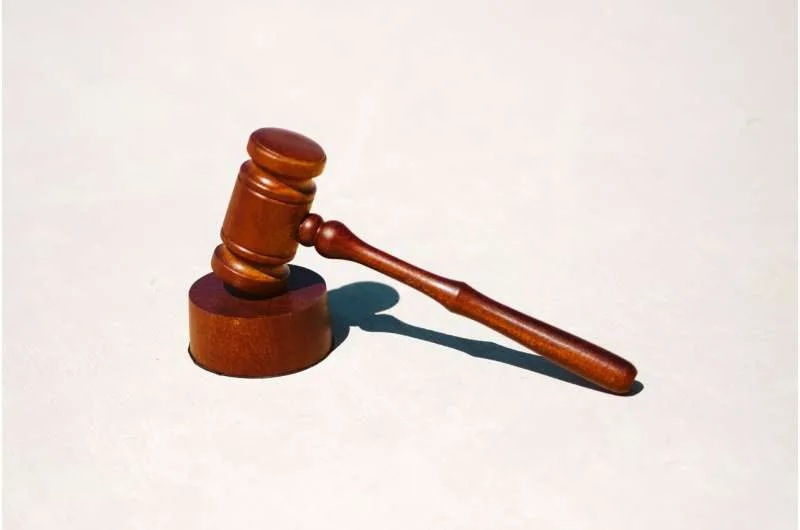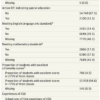
For many, a $200 traffic ticket can devastate their households’ savings and finances.
A collaboration between the University of Alabama at Birmingham, Alabama Appleseed Center for Law & Justice and the Center for Justice Innovation and Applied Research Services aims to help people who are struggling with court fines and fees.
Collaborators hope to reduce disparities among those who owe court fines and fees to limit the harm that debt often has on people’s well-being by changing the way municipalities assess and collect fines and fees.
“Nobody likes to get a traffic ticket and nobody likes to owe money. But not everybody experiences debt the same way. And that’s been something we’ve had to really help lawmakers and leadership in the state understand. A $200 traffic ticket might be a very minor inconvenience for some people, a significant inconvenience for others, and totally life changing for others. And it’s the people who it’s totally life changing for that we’re worried about,” Leah Nelson, Alabama Appleseed’s researcher director, said.
The $2.5 million grant from the Bureau of Justice Assistance will allow the collaborators to provide support for five jurisdictions across the nation. The locations have not yet been identified.
The money will be used to pair experienced practitioners and researchers to address the specific needs of each jurisdiction. Each site will collaborate with a local advocacy, research or public policy organization to create solutions that make sense for the local community.
State and municipal criminal justice systems are increasingly turning to government fines and fees to raise revenue and make up budget shortfalls.
In April, the U.S. Department of Justice sent a letter to judges across the nation urging states to stop aggressively issuing fines and fees and pushing that court practices are constitutional and nondiscriminatory.
The national letter mentioned a federal lawsuit involving Brookside’s practice of issuing fines and fees, which was first reported on by AL.com. The letter referenced a statement from the DOJ in the Brookside case, saying, “Courts, prosecutors, and police should be driven by justice—not revenue.”
Brookside revenue from fines and forfeitures rose 640% between 2018 and 2020, and came to provide 49% of the town’s income.
The letter also referenced a 2018 Alabama Appleseed survey, Under Pressure, which found that fines and fees disproportionately impacted low-income communities and communities of color, specifically African-American communities in Alabama.
“Excessive debt creates enormous problems for people,” Nelson said. “Black families are not able to save money or keep the money that they’ve saved or spend it how they want because they have to spend it on fines and fees. And that’s really troubling. That’s a demonstration of the community impact of this debt and the generational impact.”
The center’s researchers surveyed 980 Alabama residents from 41 counties and found:
- More than 80% of participants cut back on basic needs like rent, food, medical bills, car payments, and child support to pay down their debt.
- Almost 40% committed a crime to pay off their debt.
- 44% used payday or title loans to pay off their debt.
- Almost 50% shared that they thought they would never be able to pay off their debt.
When people are unable to pay their traffic tickets, the state will sometimes suspend their drivers licenses until the debts are paid off. This often results in people losing their jobs, which results in them being unable to pay the ever accumulating fees.
“When I talk with judges, or lawyers, prosecutors, lawmakers, there’s a general understanding that it’s true that there are people who owe so much money that it’s kind of like imaginary money that will never be collected,” Nelson said.
Peter Jones, associate professor in the Department of Political Science and Public Administration at UAB, said the system is inefficient for both individuals and the state.
When someone can’t drive and loses their job, the state loses money on income tax and sales tax on everyday goods.
Jones said only 10 to 15 percent of what someone pays for a traffic ticket is actually the fine. A majority of the payment goes toward paying court fees.
“All of the expenses that states have to incur to track people down, that costs money if someone owes fines and fees. You have to keep records of that and that costs money. And then you have to send the notices and that costs money,” Jones said.
“There’s better ways to think about funding that system that are more efficient, less harmful to people and maybe don’t align with incentives such as the government or law enforcement having to go out and write more tickets or go out and create higher fees,” Jones said.
Jones said the project will start with mapping and analyzing fine and fee structures in each jurisdiction to evaluate the benefit of existing practices. Organizers will then choose which jurisdictions to implement the initiatives based on their findings.
“It’s just a system that has not been carefully examined, and it’s been worsened over the years by the addition of fees,” Nelson said. “What the data says is that the system isn’t working. It’s not working for anyone. Jurisdictions are spending a lot of resources chasing people for money that they don’t have and they will never have.”
©2023 Advance Local Media LLC.
Distributed by Tribune Content Agency, LLC.
Citation:
Alabama researchers get $2.5 million to study impact of court fines, fees nationally (2023, December 5)
retrieved 5 December 2023
from https://phys.org/news/2023-12-alabama-million-impact-court-fines.html
This document is subject to copyright. Apart from any fair dealing for the purpose of private study or research, no
part may be reproduced without the written permission. The content is provided for information purposes only.


